Google Pixel 8a vs Pixel 7a: Should you upgrade to the new model?
We may earn a commission if you make a purchase from the links on this page.

Intro
The Pixel 8a is finally official after profusely leaking out for the past few months. It comes with a better display, newer chip, new design colors, and still takes tons of inspiration from Google's seemingly endless bag of AI goodies.
While nothing with the Pixel 8a is groundbreaking in any way (it's a mix between the Pixel 7a and the Pixel 8), it's that marriage of excellent hardware and hard-to-beat $499 starting price that make this new phone yet another value champ. Look high, look low, you might not find another Android phone that offers so much value at this price point, period.
The improvements that the Pixel 8a brings to the Pixel 7a are all quite notable, so let's dive in and see what separates the two phones.
In mid-2024, Google announced a whole new slew of new Pixel devices, like the Pixel 9, Pixel 9 Pro, Pixel 9 Pro XL, and the Pixel 9 Pro Fold. How do they compare against the Pixel 9, for example? We have compared the Pixel 8a vs Pixel 9, but we don't know if the Pixel 9a is in the cards. If it is, it will likely arrive in early 2025.
Pixel 8a vs Pixel 7a differences:
| Google Pixel 8a | Google Pixel 7a |
|---|---|
| A 6.1-inch OLED display with smoother 120Hz refresh rate | A 6.1-inch OLED display with 90Hz refresh rate |
| Higher maximum brightness (comparable to Pixel 8) | Lower brightness |
| Google Tensor G3 chip | Google Tensor G2 chip |
| Larger battery (4,492mAh) | Slightly smaller battery (4,385mAh) |
| Super-res zoom up to 8X | Regular 8x digital zoom |
| 128GB and 256GB storage versions | Just a single 128GB storage versions |
| Seven years of OS, security updates, Feature Drops (until 2031) | Major Android updates until 2026, security patches until 2028 |
Table of Contents:
Read more:
- Google Pixel 8a review
- Google Pixel 8a or Samsung Galaxy S24 FE: What are the differences
Design and Display Quality
Slight adjustments here and there, but a vastly improved display

Pixel 8a vs Pixel 7a (Image by PhoneArena)
The new Pixel 8a brings no major shake-ups in the design section. Google's new affordable phone looks mostly similar to the Pixel 7a, and in extension, to pretty much all recent Pixels. The corners of the Pixel 8a are slightly more rounded, but those don't introduce major implications to the user experience.
The Pixel 8a boasts Gorilla Glass 3 up front and back, with an aluminum frame, so it's now way less plastick-y than the Pixel 7a, which emulated glass much too well.
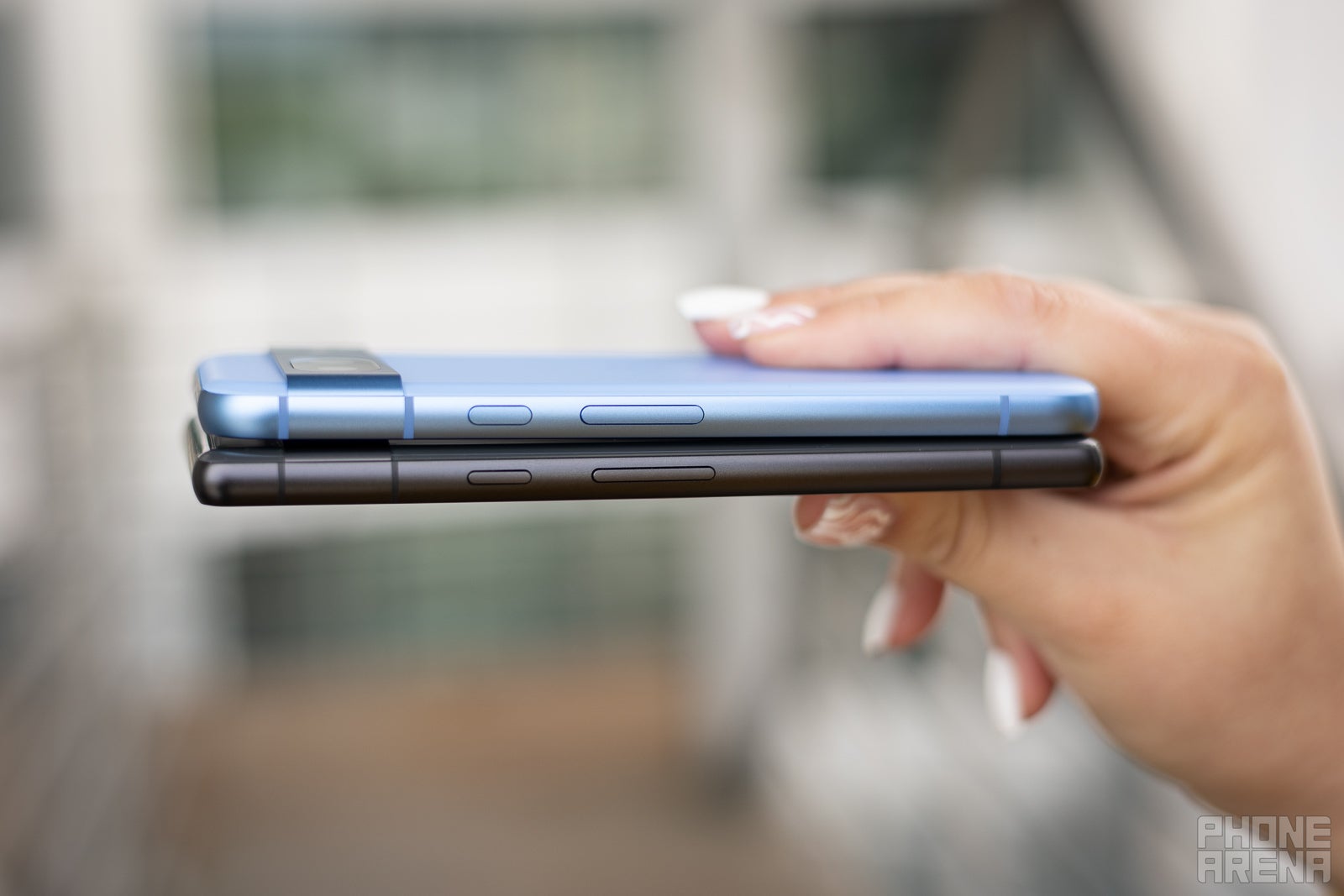
Pixel 8a vs Pixel 7a (Image by PhoneArena)
Both devices boast fingerprint-resistant coating, and IP67 water/dust-resistance, so pretty good on the durability front. All the buttons and ports are on their usual spots, nothing's missing.
Colors-wise, Google has the knack for releasing quite decent color options for its phones, often with witty names, and the Pixel 8a doesn't differ. The phone is available in Aloe (green), Bay (blue), Porcelain (dirty white), and Obsidian (black). Meanwhile, the Pixel 7a is available in Charcoal (black), Snow (dirty white), Sea (blue), and Coral (pinkish orange).
Size-wise, the Pixel 8a and the Pixel 7a are mostly similar in terms of size and weight. The new phone is lighter, narrower, and thinner, but the differences are so minuscule that you probably wouldn't be able to tell. Handling the Pixel 8a feels just as great as the Pixel 7a: it's a delightfully compact and lightweight device to have in your hands.
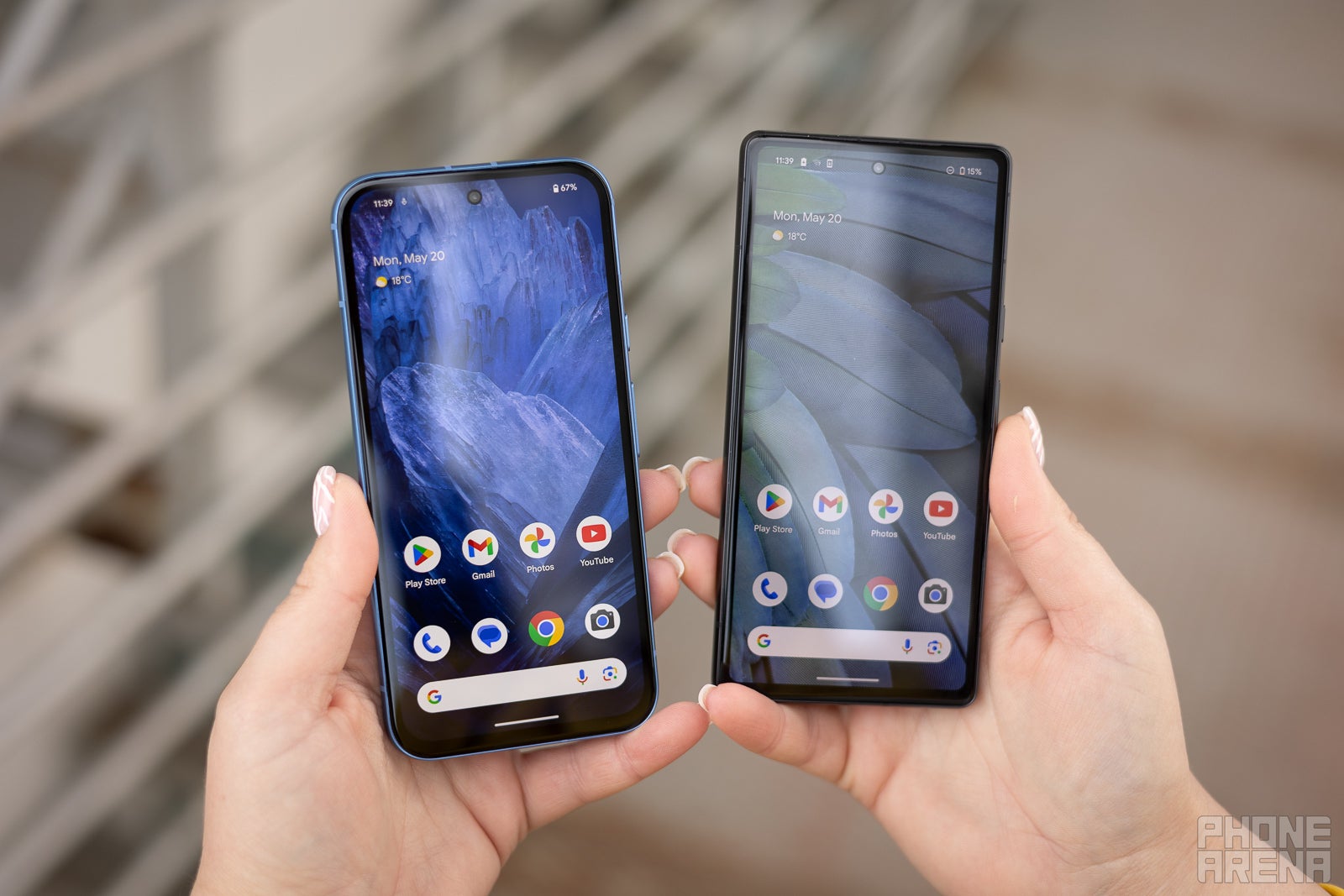
Pixel 8a vs Pixel 7a (Image by PhoneArena)
Moving on to the display section, the core aspects of the Pixel 8a screen are mostly the same as the ones of the Pixel 7a: 6.1 inches in size, FHD+ resolution, and OLED technology. However, Google has introduced two critical changes that surely put the Pixel 8a in flagship phone technology.
While the Pixel 7a only has a 90Hz screen with so-so maximum brightness, the Pixel 8a boasts a much smoother 120Hz display with up to 1400 nits of maximum brightness in HDR mode. No two ways around that: these changes are superb additions to Google's best-value Pixel phone! In fact, the Pixel 8a creeps extremely close to the Pixel 8 flagship phone, which has pretty similar display specs.
Display Measurements:
Our custom display specs truly highlight the significance of the display upgrades. We measured nearly double the maximum brightness on the new Pixel 8a, which is a staggering upgrade over last year's Pixel 7a!
This means it will be much easier to make out on-screen content on the Pixel 8a, especially under the bright noon sun, which will certainly improve your day-to-day experience with the Pixel 8a. Apart from that, both phones have mostly similar screen properties, with similar color accuracy and minimum brightness.
Both the Pixel 8a and the Pixel 7a have in-display fingerprint scanners, but we can't say that the Pixel 8a feels faster than the Pixel 7a. While flagship phones may unlock the device slightly faster, you won't have any problems with the Pixel 8a's fingerprint. There's also picture-based Face Unlock, which throws away security in favor of speediness.
Performance and Software
Big boost in graphics

Pixel 8a vs Pixel 7a (Image by PhoneArena)
The Pixel 8a comes with the Tensor G3 chip that's also found in the Pixel 8 and Pixel 8 Pro, which continues Google's push towards AI and ML instead of relying on raw power. That said, the Tensor G3 is definitely a very decent step-up in comparison with its previous generation. Meanwhile, the Pixel 7a comes along with the same Tensor G2 chip found in the Pixel 7/Pixel 7 Pro models, as well as the Google Pixel Fold.
According to our benchmarking test, the Pixel 8a demolishes the Pixel 7a in the CPU-heavy GeekBench 6 single- and multi-core tests. In the GPU-tasking 3DMark Extreme stress test, it's also the Pixel 8a that triumphs with a comfortable lead. If it's gaming that you're after, then the Pixel 8a should be a much more capable device that will better suit your needs. Overall, a serious performance upgrade.
RAM and storage-wide, the Pixel 8a comes with 8GB of RAM, as well as 128GB or 256GB of native storage. That's already double the choices in comparison with the Pixel 7a, which is only available in 128GB. Such a boost in the storage options is something we applaud.
Camera
It's all in the software
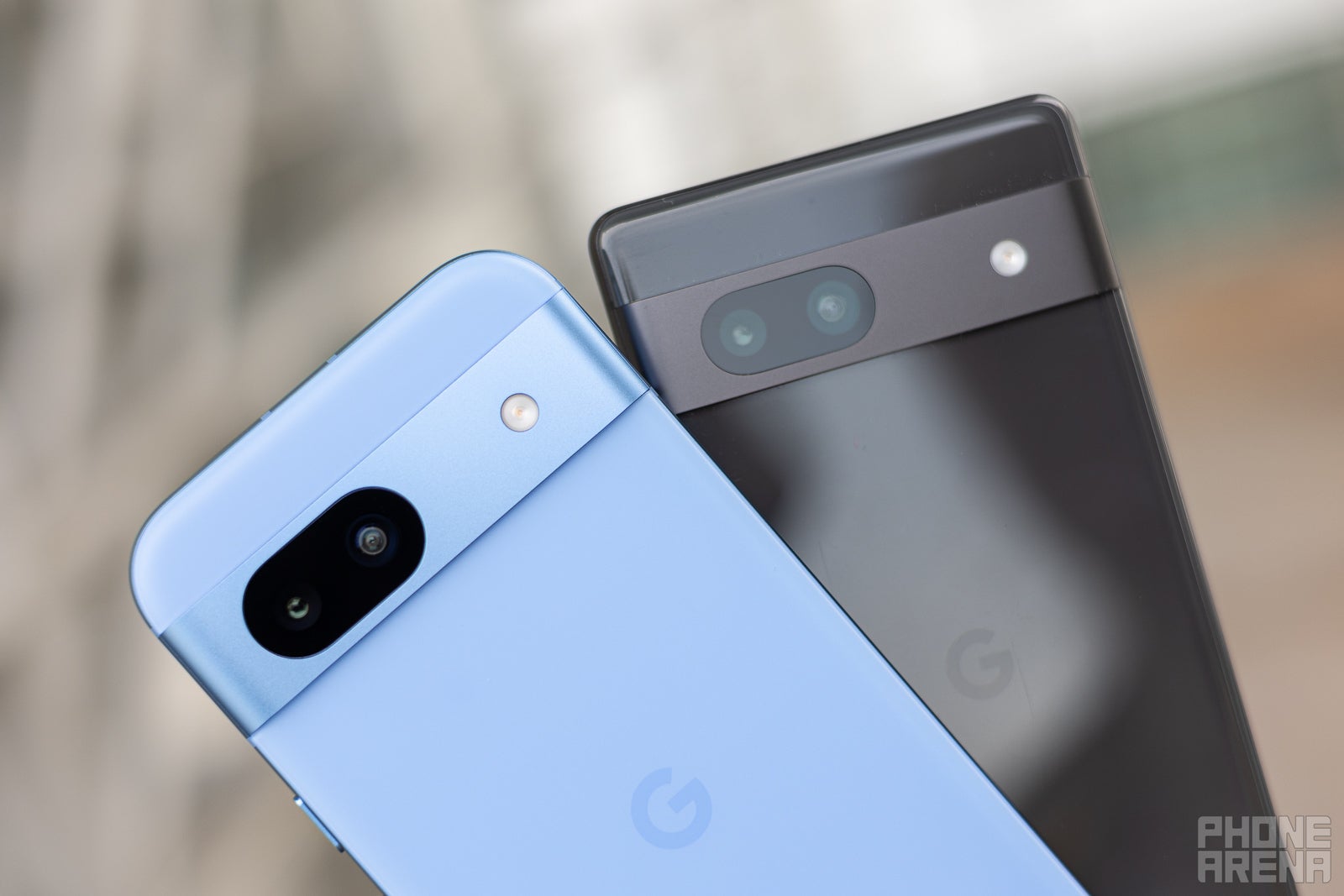
Pixel 8a vs Pixel 7a (Image by PhoneArena)
There aren't many differences between the Pixel 8a and the Pixel 7a in terms of camera hardware. However, the majority of potential improvements could come courtesy of software improvements.
Last year, the Pixel 7a introduced new sensors to the lineup, a 64MP Sony IMX787 main camera and a 13MP Sony IMX712-powered ultra-wide cameras, and unsurprisingly, we find those two on the Pixel 8a as well. No major changes in the hardware, as we mentioned, but interestingly, the Pixel 8a seems to support Super Res Zoom up to 8x, which is something the Pixel 7a didn't have. Sure, the latter can also digitally zoom 8x, but the newer phone will use AI to deliver better results.
Hardware doesn't play such a major role with Pixel phones, as the majority of camera improvements come from software, image-processing upgrades, and tons of AI/ML goodies. This is the case with the Pixel 8a as well. Here are just a few of the more notable AI features the Pixel 8a has in store:
- Best Take: Combines several pictures, ensuring that none of your subjects blinked or looked away from the camera.
- Audio Magic Eraser: When you're taking a video, this feature intelligently isolates the sounds that you want to record apart from the distracting sounds around you.
- Magic Editor: This one allows you to change the background of your photo, lift and move your object around, or erase any unwanted objects.
- Photo Unblur: Removes blur from any of your photos.
- Portrait Light: Aims to deliver more flattering portraits by balancing the specular highlights and harsh shadows on one's face.
Let's move to the image quality, shall we?
Main camera
In terms of main camera image quality, we are struggling to find any noteworthy differences, as the two devices deliver nearly identical photos. Both take very decent photos in decent lighting, with balanced dynamics, lovely colors, and decent detail. Long story short, neither will disappoint, which also goes as a compliment to the Pixel 7a.
The same applies for low-light imagery as well. When the light is far from perfect, we find it challenging to pinpoint a clear winner, as the two devices take extremely similar photos.
Zoom Quality
You don't have a proper telephoto camera on either, with both phones maxing out at 8X digital zoom. Both devices support Super Res zoom, which is digital zoom augmented by enhanced algorithms. Does this make a big difference or is just another nice-to-have?
Well, it's virtually impossible to deem one phone the clear winner in this camera exercise. There's a lot to be desired from the zoom camera of either handset, but none is significantly worse than the other.
Ultra-wide Camera
In broad daylight, the Pixel 7a's ultra-wide camera takes slightly warmer images, whereas the Pixel 8a has a slight but noticeable colder undertone. Aside from that, not much else in terms of differences.
The same applies to low-light photos taken with the ultra-wide camera.
Selfies
Not many differences up front either––both the Pixel 8a and the Pixel 7a take superb selfies.
Audio Quality and Haptics
Both the Pixel 7a and its successor deliver very decent audio quality coming from their dual stereo speakers, albeit one can notice the lack of deep bass or the slight distortion at max volume. Minor issues, mind you.
Haptics-wise, we feel the Pixel 7a delivers a decent experience for its price range, treating us to a fairly strong haptic feedback that isn't mushy at all. There's that extra level of strength and accuracy that could help the Pixel 8a separate itself from the Pixel 7a, let's see if Google will boost this area of the device or will leave things as they are.
Battery Life and Charging
Massive upgrade incoming?
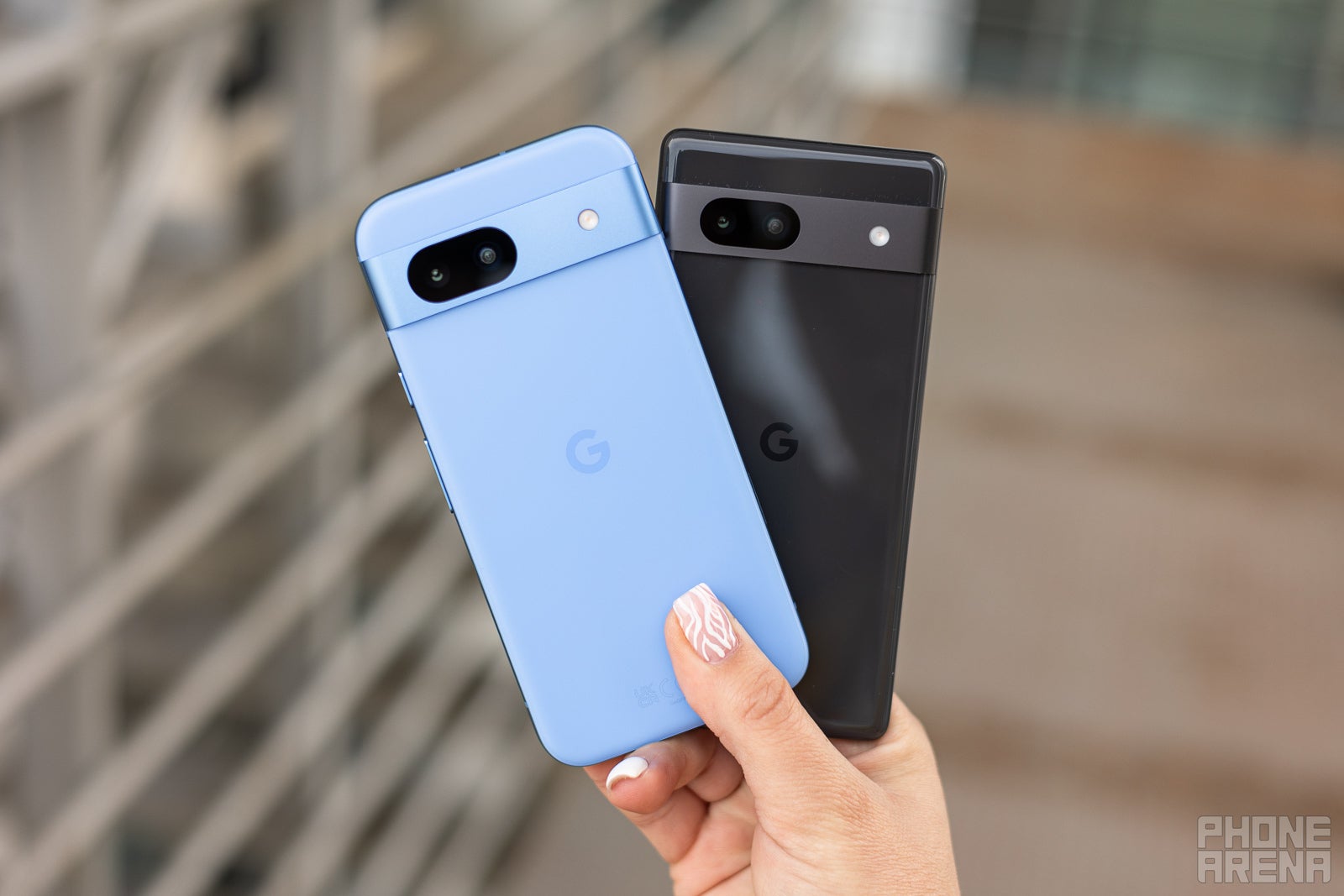
Pixel 8a vs Pixel 7a (Image by PhoneArena)
The Pixel 8a comes with a 4,492mAh battery, a slight bump over the 4,385mAh battery inside the Pixel 7a. That's not enough to justify a significant battery life increase, which is why Google's official battery life stats for the Pixel 8a and Pixel 7a are the same: beyond 24-hour battery life and up to three days in Extreme Battery Saver mode.
In our own custom benchmark test in the Pixel 7a review, the phone hit 15 hours and 27 minutes in our browsing test, above 9 hours in the video-streaming test, and four hours and a half in the 3D gaming exercise. That's mostly comparable to the Pixel 8. Meanwhile, the new Pixel 8a has slightly worse battery life in our web browsing test, which aims to replicate an everyday browsing experience.
The Pixel 8a is slightly worse in our video streaming test, where it lasts half an hour less than the Pixel 7a, but the new phone decidedly makes up for the lost ground in our 3D gaming test, where it easily smokes its predecessor.
Charging-wise, the Pixel 8a comes with the same charging speeds that the Pixel 7a delivered: 18W wired and 7.5W wireless. Those were painfully slow on the Pixel 7a, which takes two hours to fully charge, while the Pixel 8a is marginally faster, but not much at 106 minutes.
In our tests, the Pixel 8a takes significantly faster to charge fully, which is great.
Specs Comparison
We've summarized the official Pixel 8a vs Pixel 7a specs in the table below.
| Google Pixel 8a | Google Pixel 8 | |
|---|---|---|
| Size, weight | 152.1 x 72.2 x 8.9mm, 188gr | 152.4 x 72.9 x 9.0mm, 193gr |
| Screen | 6.1" FHD+ OLED 120Hz | 6.1" FHD+ OLED 90Hz |
| Processor | Tensor G3 | Tensor G2 |
| RAM, Storage | 8GB/128GB 8GB/256GB | 8GB/128GB |
| Cameras | 64MP main 13MP ultra-wide 13MP front | 64MP main 13MP ultra-wide 13MP front |
| Battery | 4,492mAh | 4,385mAh |
| Charging | USB-C 18W wired, 7.5W wireless | USB-C 18W wired, 7.5W wireless |
Summary
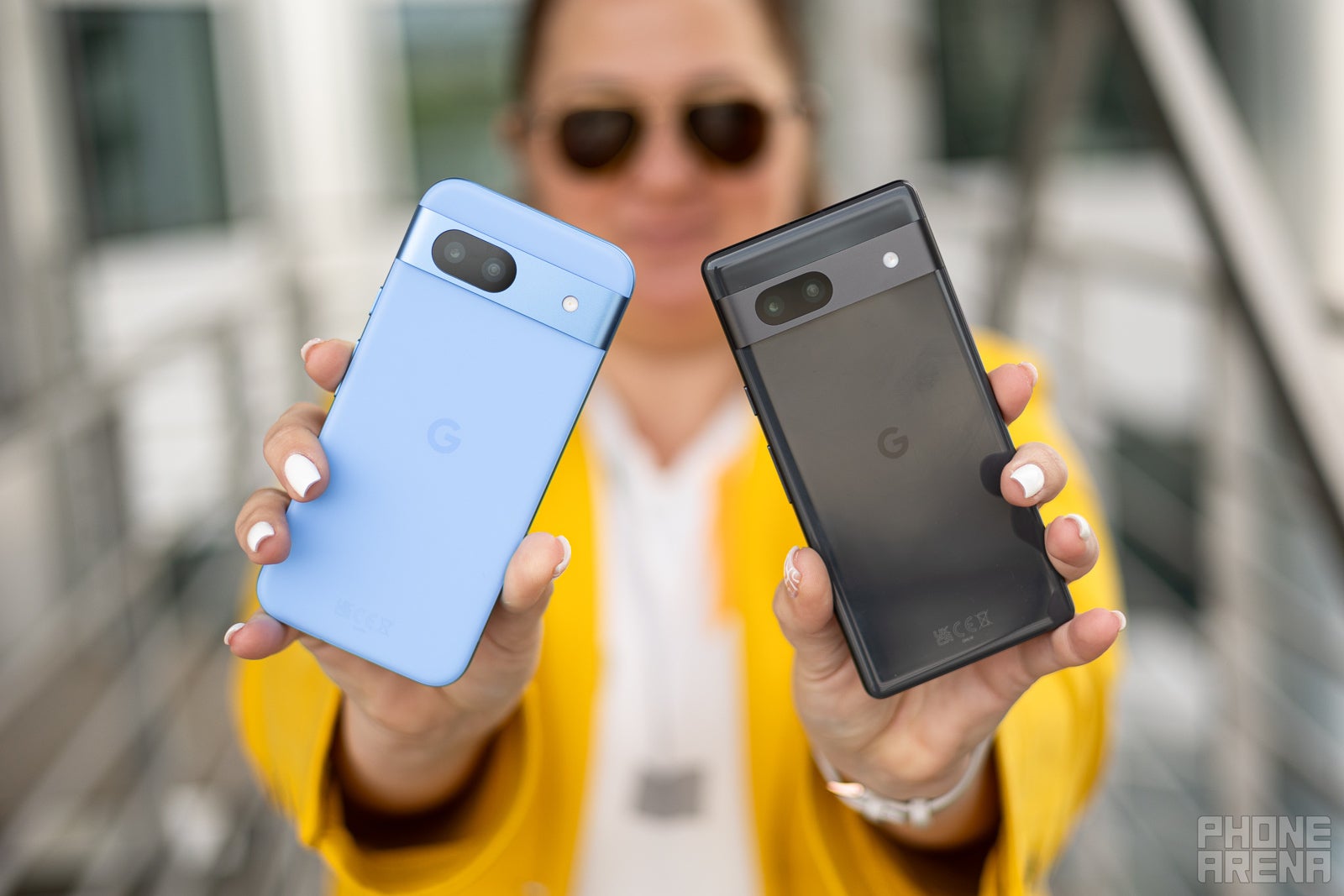
Pixel 8a vs Pixel 7a (Image by PhoneArena)
The Pixel 8a delivers some serious upgrades over the Pixel 7a.
A much better display, slightly faster graphics performance, as well as a slightly better battery life in some scenarios make this one a decent successor to the Pixel 7a. Most importantly, however, we get Google's seven-year dedication to keep the Pixel 8a supported, which is a major benefit you get for your $499.
A much better display, slightly faster graphics performance, as well as a slightly better battery life in some scenarios make this one a decent successor to the Pixel 7a. Most importantly, however, we get Google's seven-year dedication to keep the Pixel 8a supported, which is a major benefit you get for your $499.
As the price remains the same ($499 in the US), this means that grabbing the Pixel 8a is a no-brainer move, especially if you're coming from a much older Pixel phone.
Should you upgrade from the Pixel 7a, though? Well, probably not. While it's true that you'll get some better nice-to-haves, your Pixel 7a is still a device that's more than usable in 2024, and will remain so for many years.
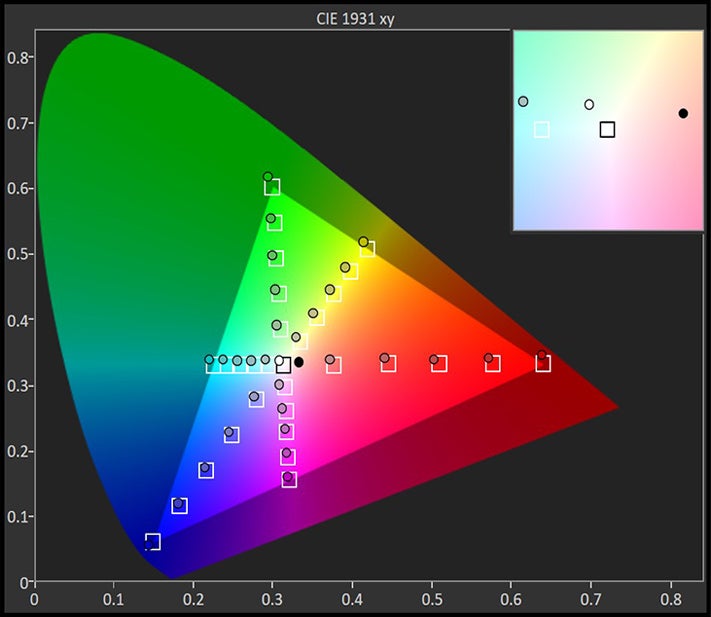
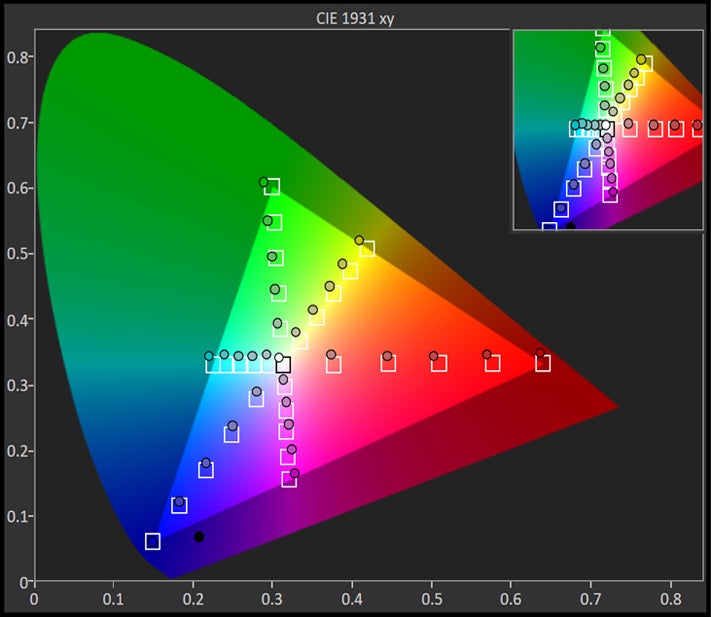




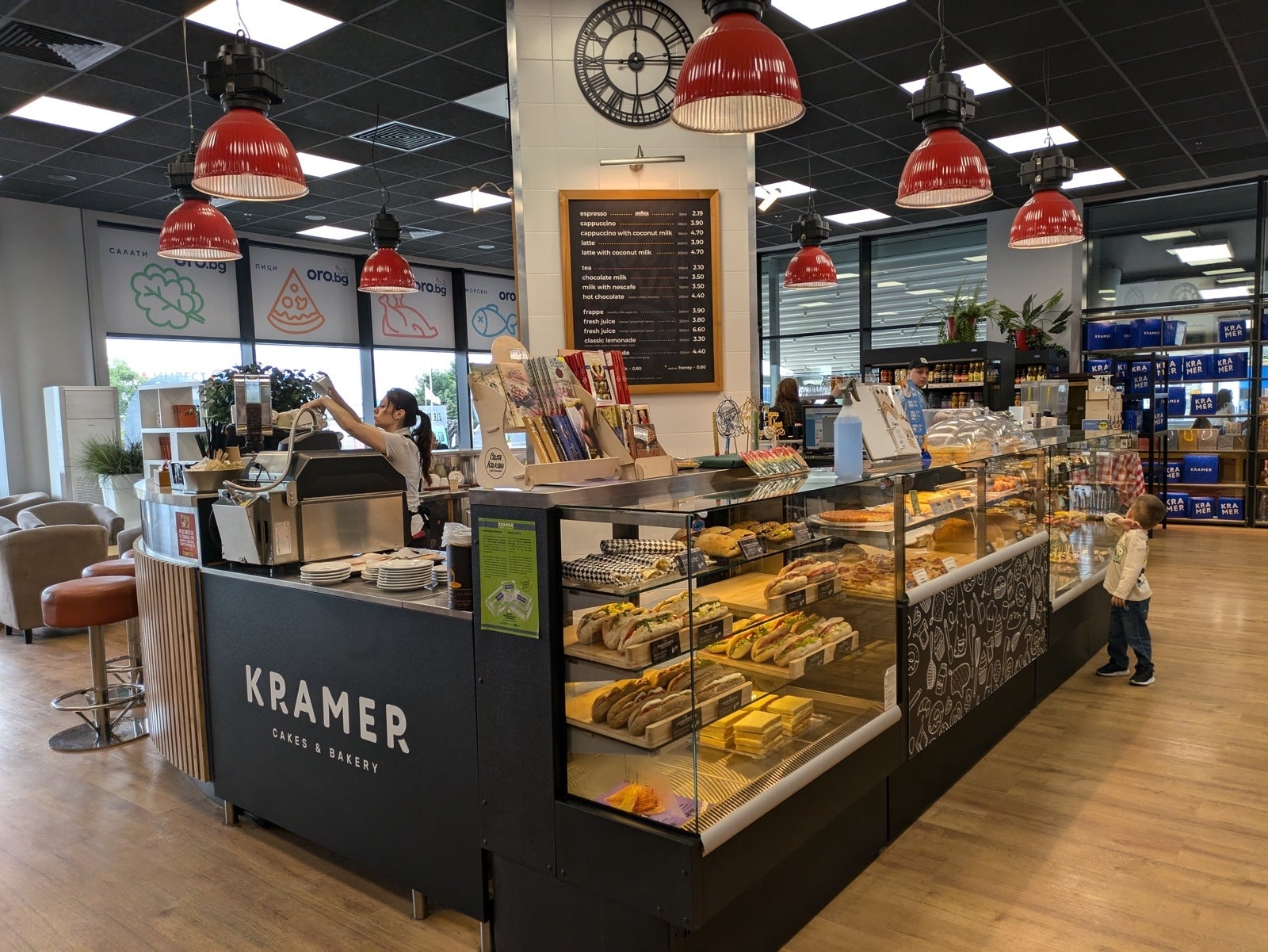
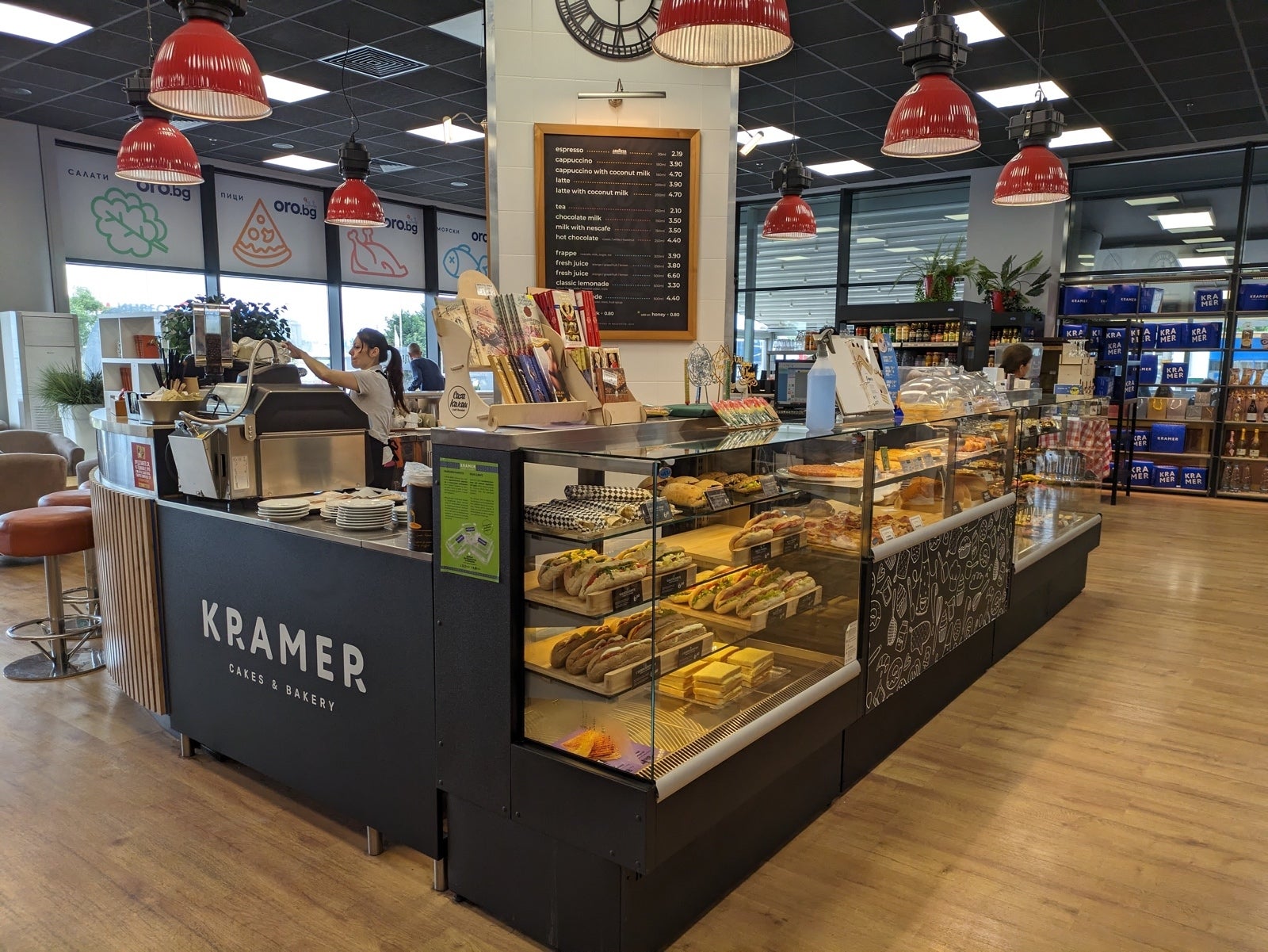
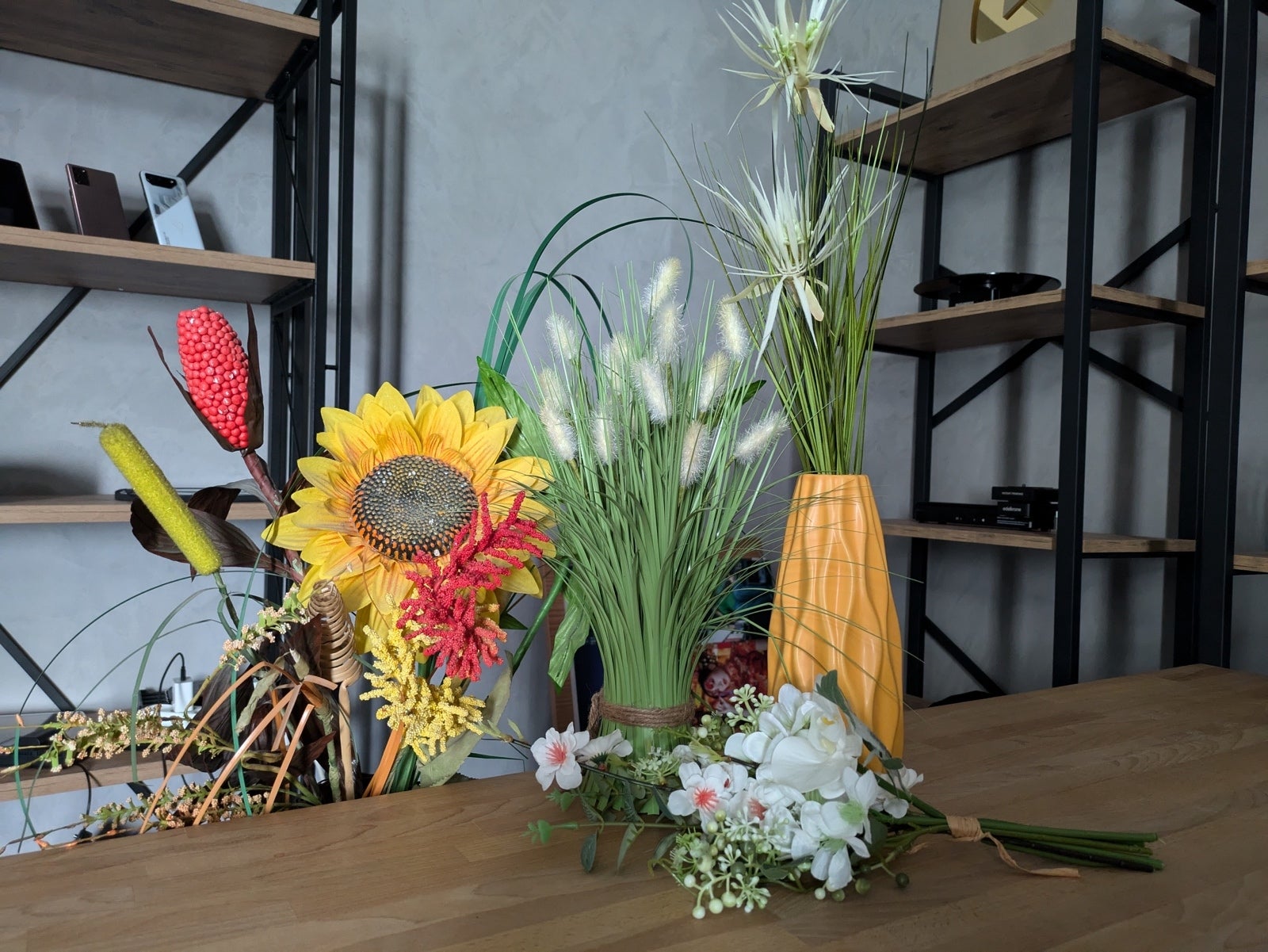
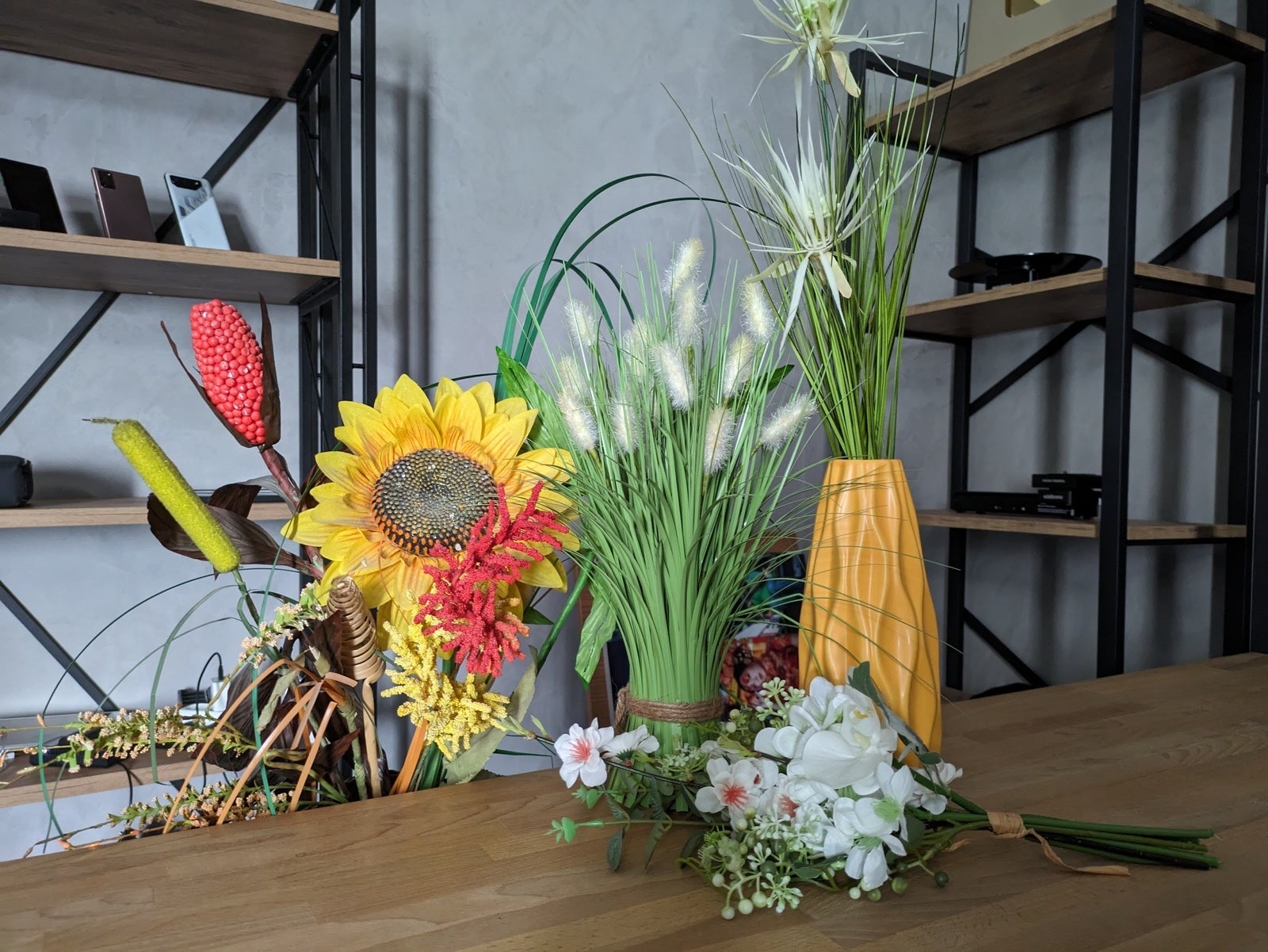
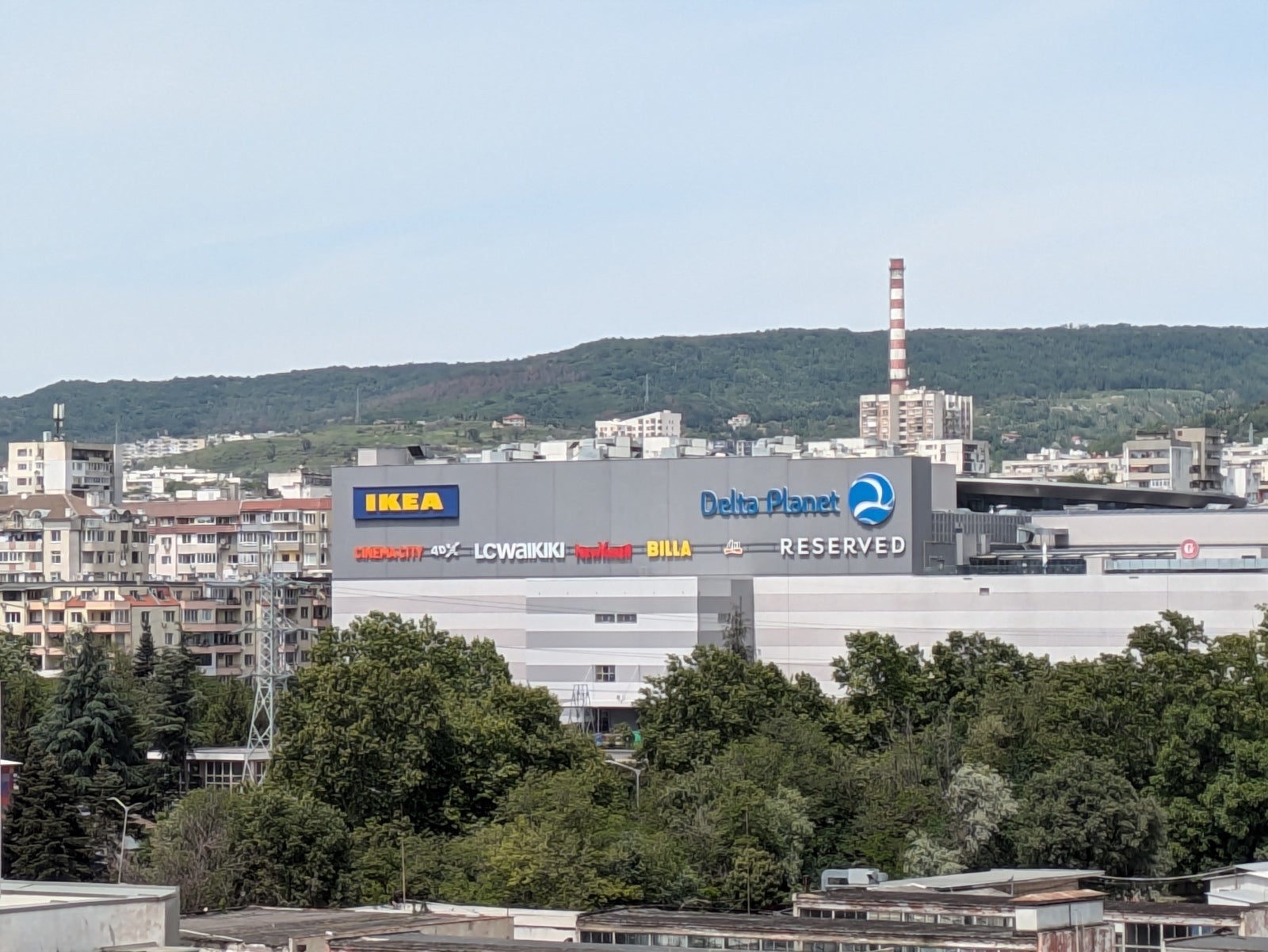
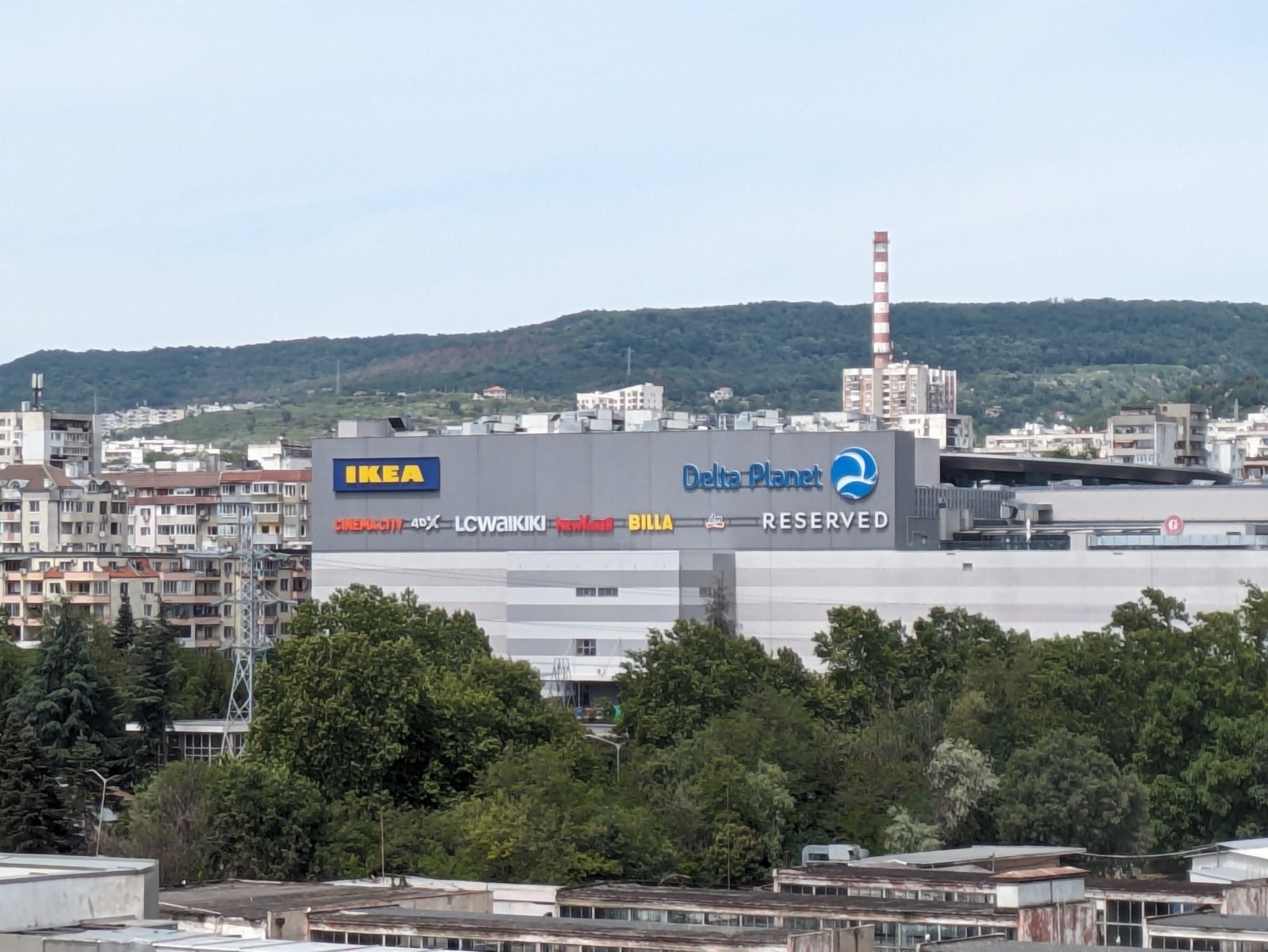
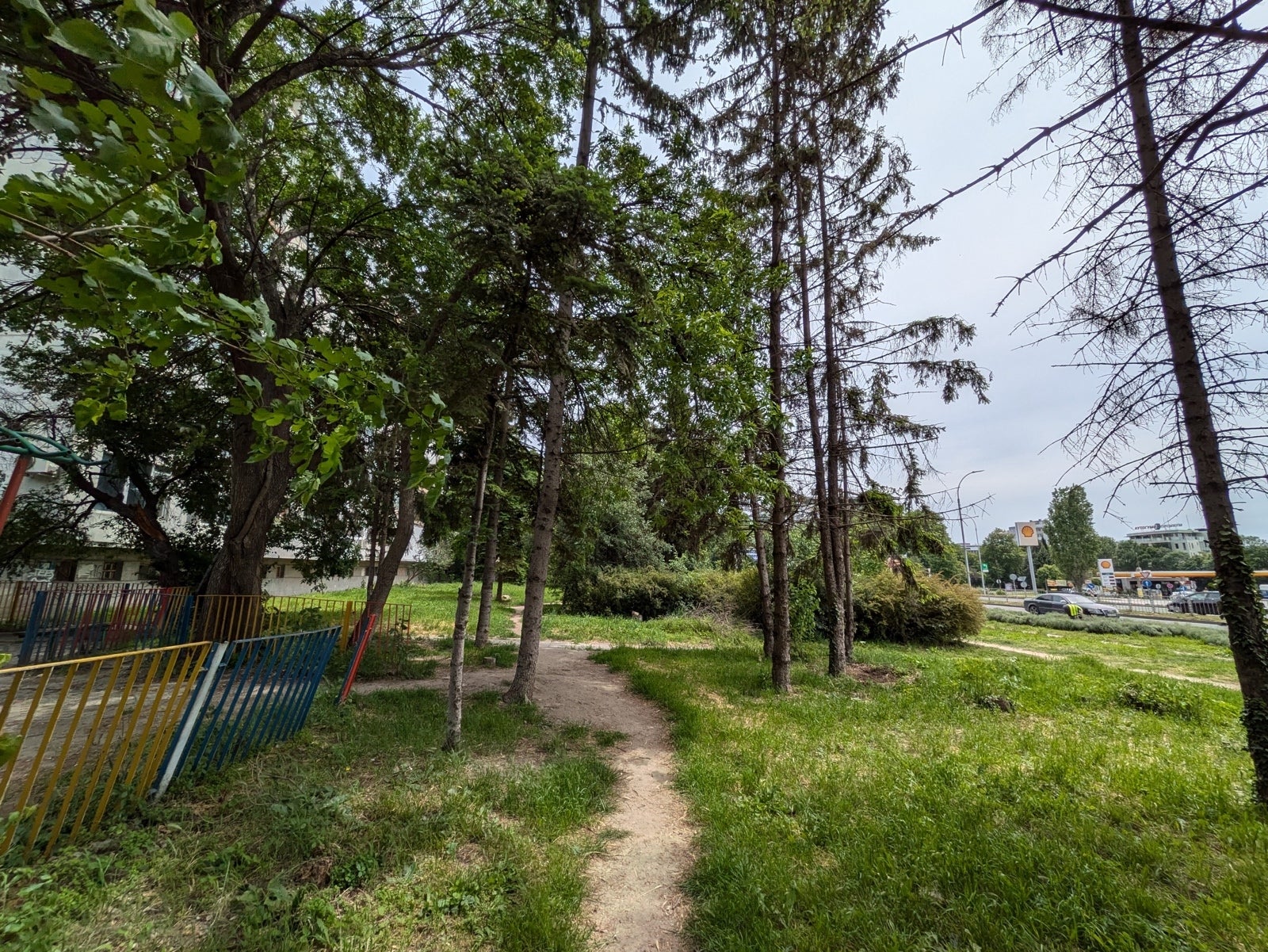
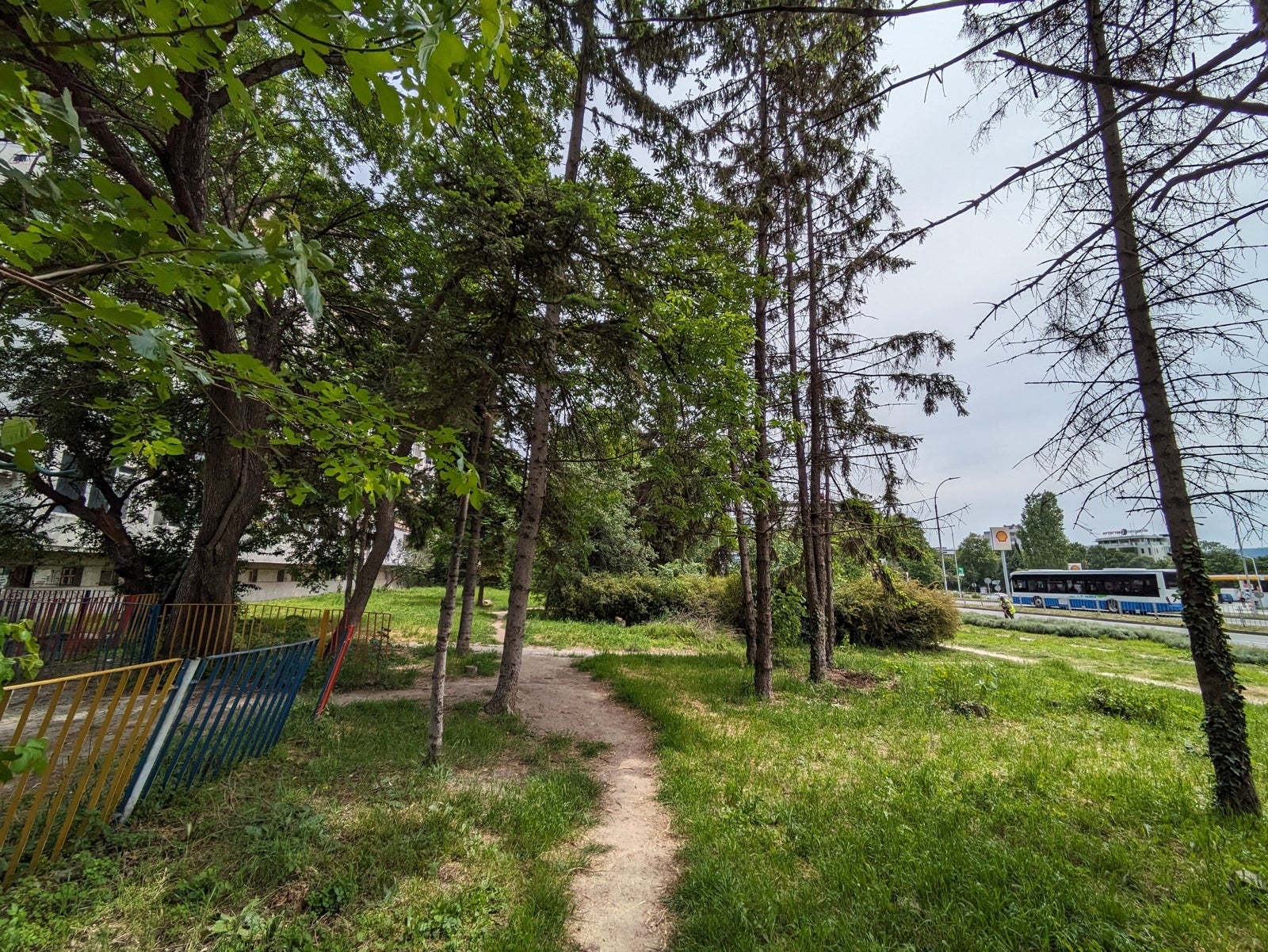
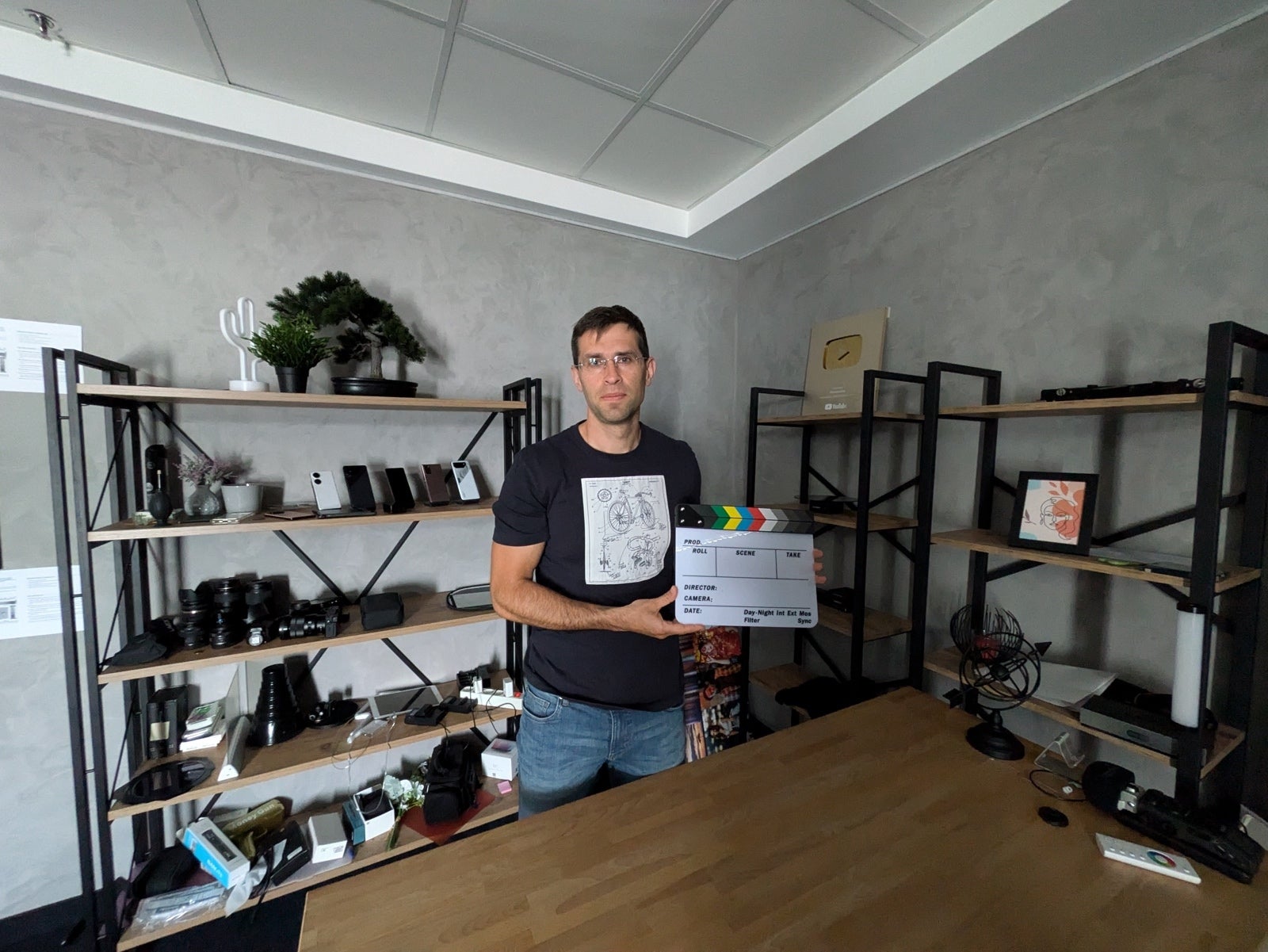
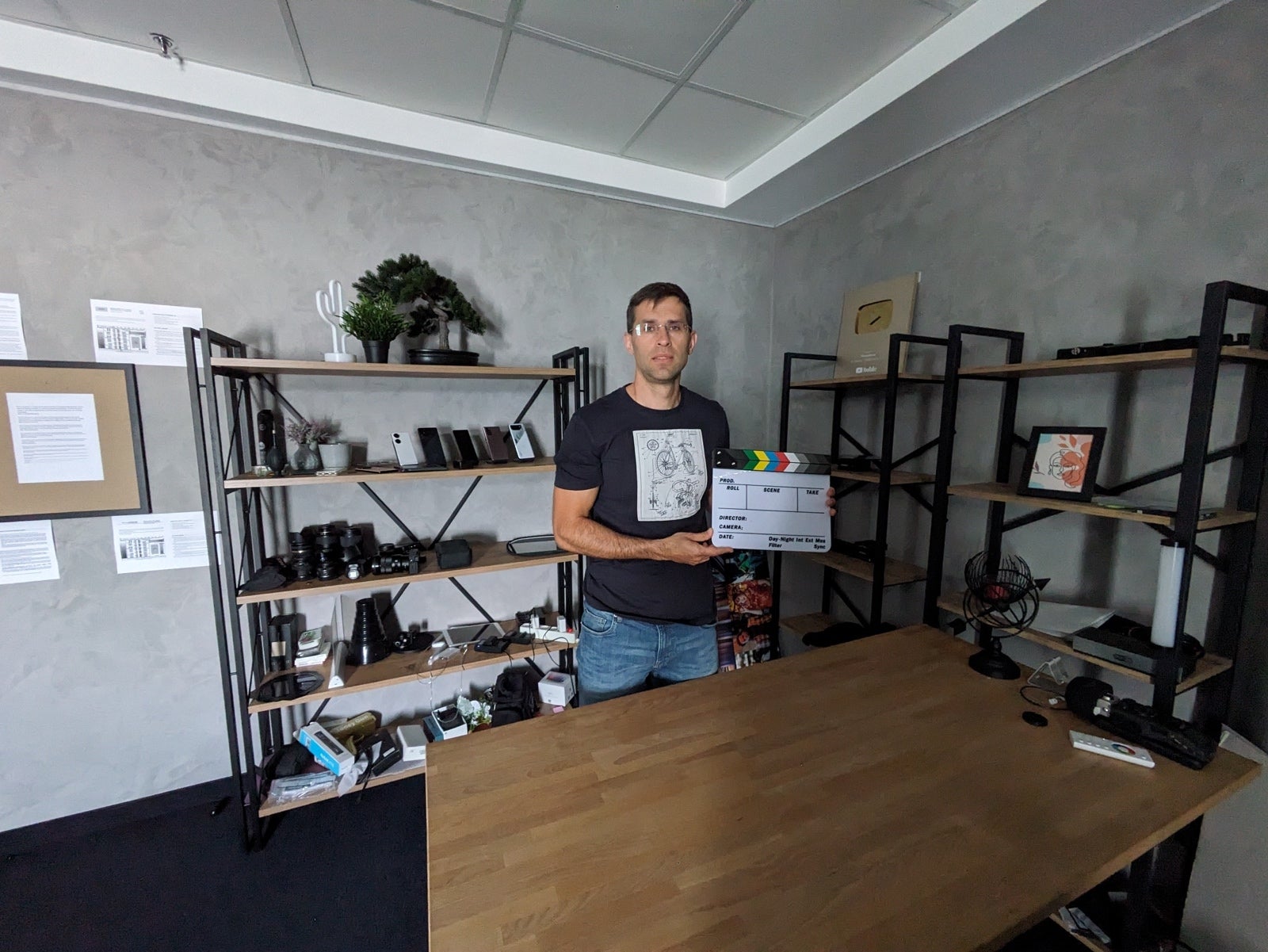








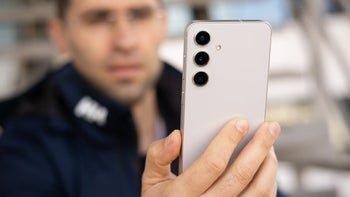
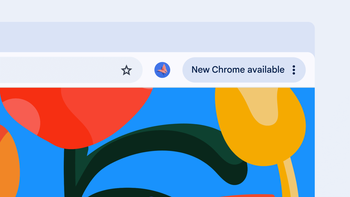
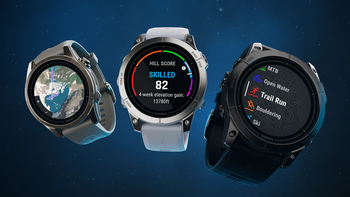









Things that are NOT allowed: